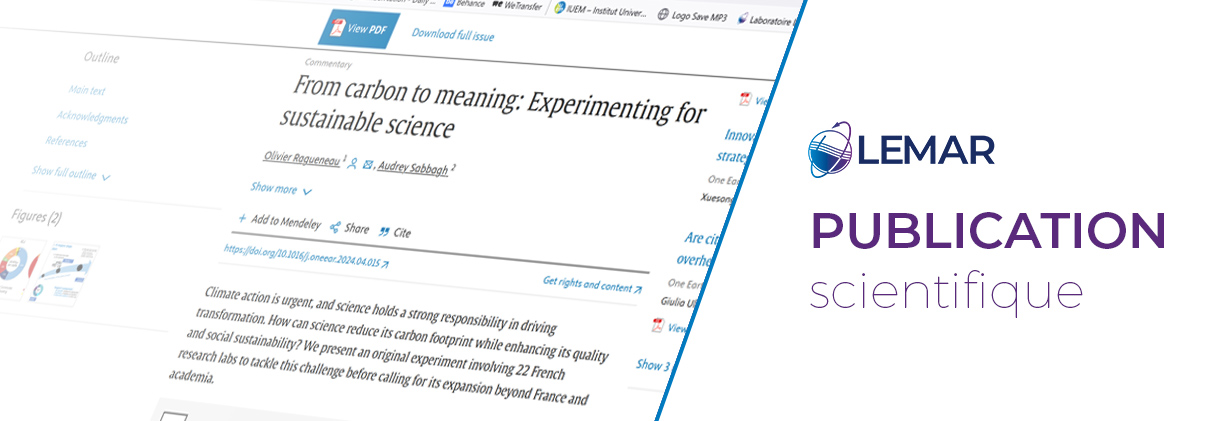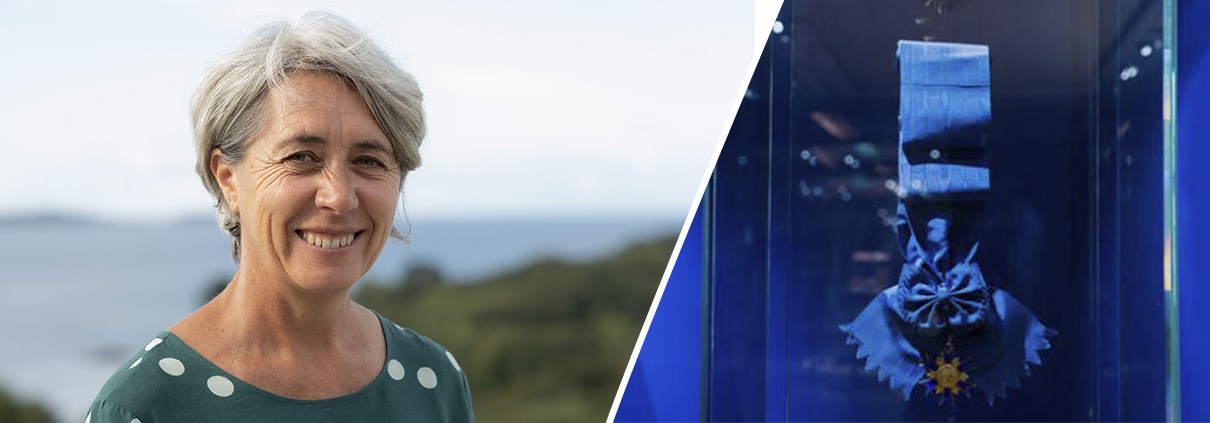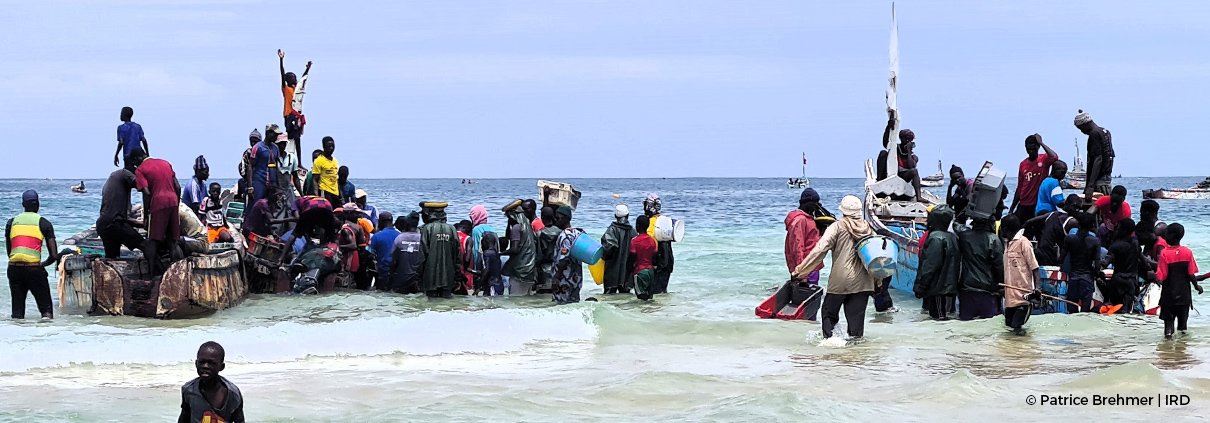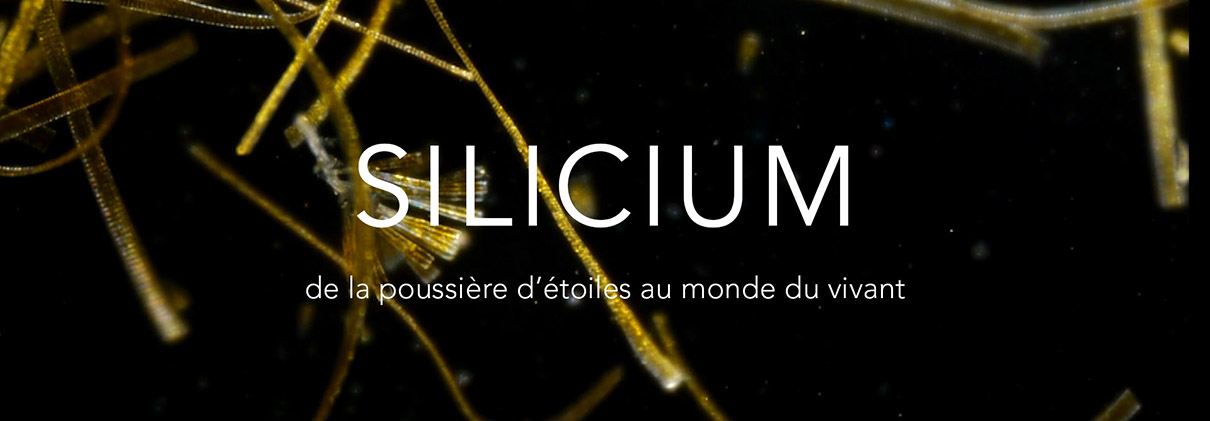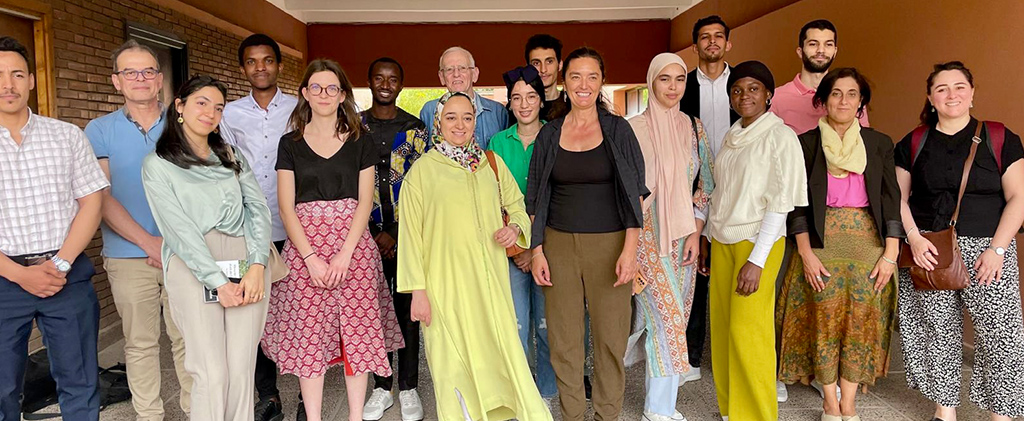Expé-1point5 publication in “One Earth”
Here is a link to a publication by Olivier Ragueneau and Audrey Sabbagh, published on May 17 in the journal “One Earth.” It describes the philosophy and objectives of the experiment that has been co-led since 2020 by LEMAR (IUEM) and UMR MERIT (Université Paris Cité) as part of the Labos 1point5 collective. The Expé-1point5 aims to stimulate changes in laboratory research practices to reduce their greenhouse gas (GHG) emissions. As its title suggests, “From carbon to meaning,” it goes beyond the climate perspective to question the very meaning of our research activities under climate constraints: is it possible to maintain high-quality research, and even increase it, notably through the idea of slow science, while reducing GHG emissions and improving the quality of life at work? The idea of this article is to propose making research a transformation demonstrator to achieve environmentally and socially sustainable research.
Enjoy the reading!
Read the article:
“From carbon to meaning: Experimenting for sustainable science”

